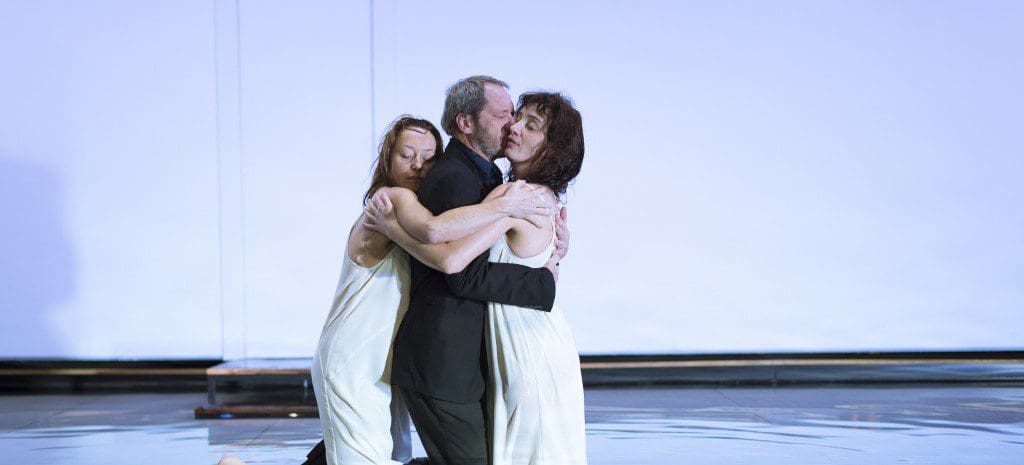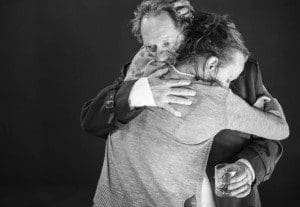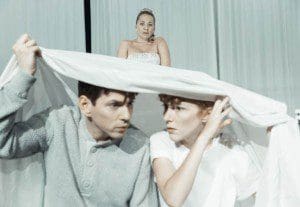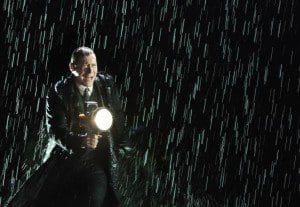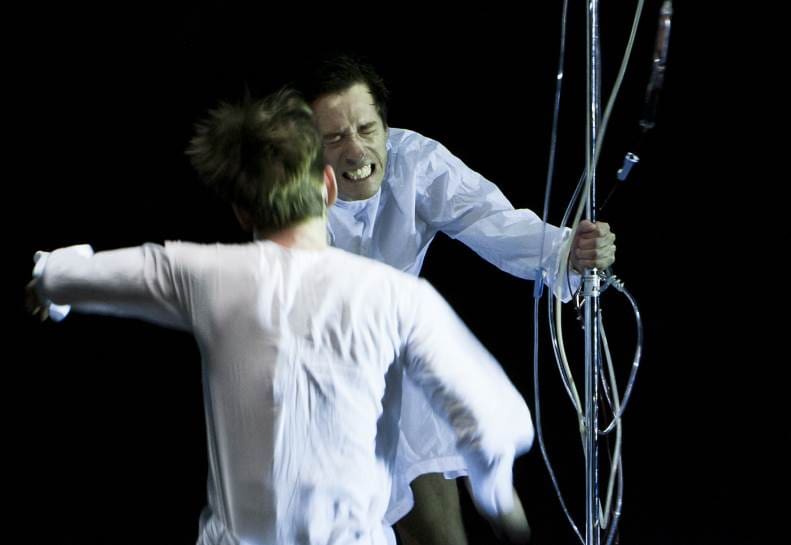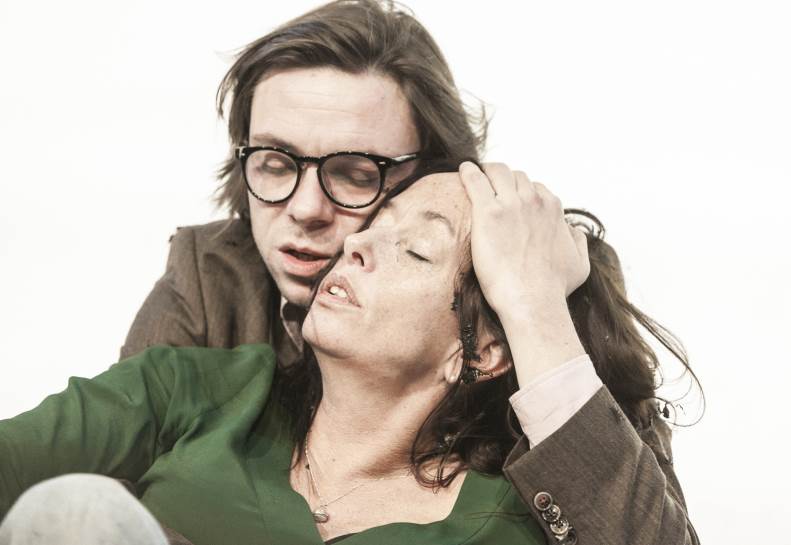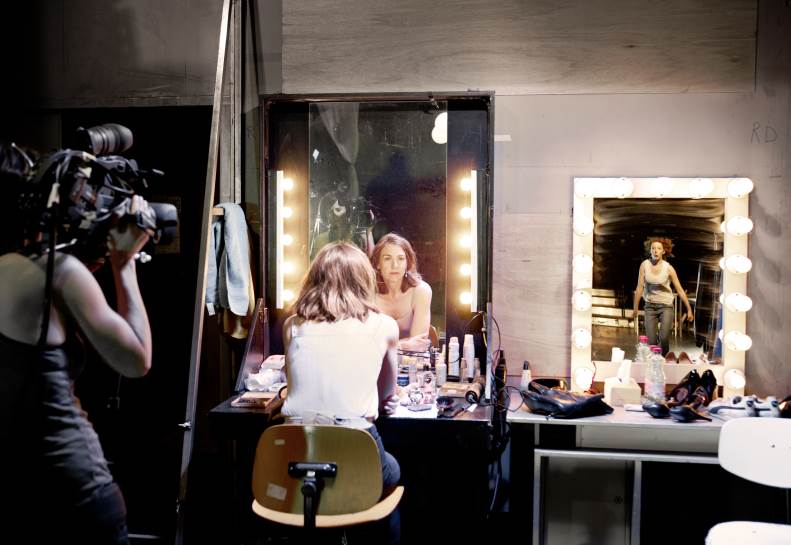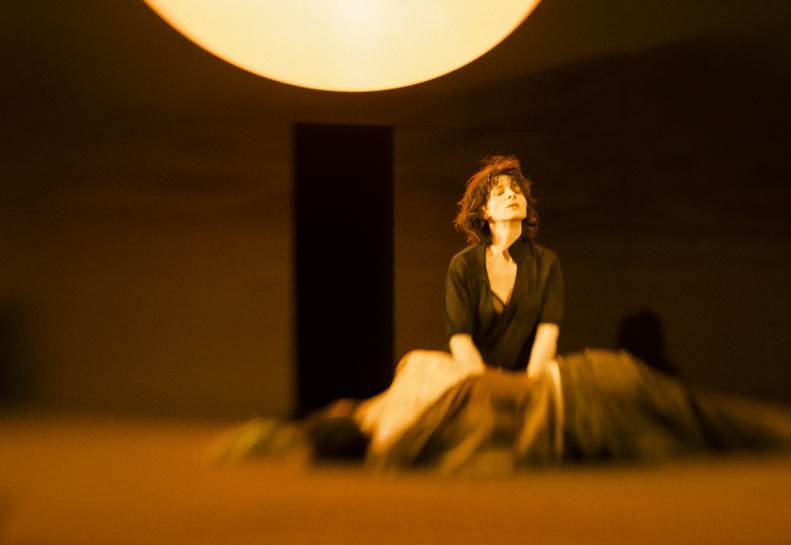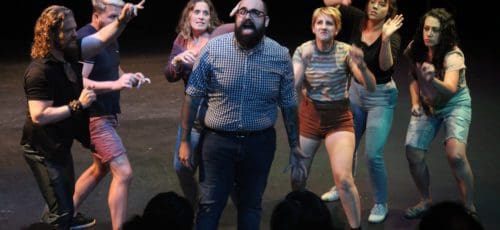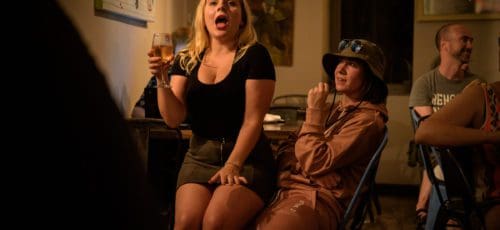Living on the fringes: a survival guide for avant-garde theater
- Gijs Scholten van Aschat, Marieke Heebink in lange dagreis naar de nacht
- Alwin Pulinckx, Camilla Siegertsz, Hélène Devos in een bruid in de morgen
- Hans Kesting in de welwillenden
By Simon Joseph
Europe’s capitals have always had a love affair with art, one that is as enduring as art itself. In times of upheaval, this courtship has come into question; survival demands reality, not romanticism. To be sure, for any amorous relationship to triumph, it needs the support of others. But then the art world’s benefactors are a fickle bunch.
Cultural policy and economic crisis do not normally make ideal bed partners. As you might expect, stimulating the arts sector comes low down on the list of government spending in much of the European Union. Nevertheless, there are subsidies available, and a handful of large Dutch theater companies are benefiting from them.
Tiny it may be, but the Netherlands still lays claim to no less than eight major-city theater companies, all vying for their share of the Ministry of Culture’s ever-diminishing pot of gold. One such company is Toneelgroep Amsterdam. This fixed ensemble has grown into the largest, and by far the most popular, theater company in the Netherlands. Despite a lack of funding, in the country’s capital, theater is thriving.
In the rest of the country, subsidized theater, which is presumably of most value to society, continues to fight for its life. This raises the very question that Toneelgroep Amsterdam seeks to examine with their production of After the Rehearsal/Persona: “What place does art have in society?”
The intention of so many large theater companies, it seems, is to secure audiences. Their productions cannot be everything to everyone, so they attempt to achieve this aim by making populist theater and then sticking with the winning formula, rather than staying true to any artistic integrity. This attitude towards the arts, and especially to theater goes back a long way, particularly when you are in the market for subsidies. In times of austerity, how often do we hear the old cliché: “Art’s fine in its place, but it doesn’t put butts in seats.”
Toneelgroep Amsterdam has survived the test of time whilst remaining artistically dynamic and, by the same token, true to itself. After its founding in 1987, artistic director Gerardjan Rijnders hauled the company up from the depths of Dutch theater, assigning its experimental brand to the main stage. Rijnders’ successor Ivo van Hove—a name now synonymous with Toneelgroep Amsterdam—continues in this tradition. Together with designer Jan Versweyveld they seek to shatter the limitations of large theater halls and step out of the mainstream frame and into the unknown.
Nowadays, Toneelgroep Amsterdam is something of a household name in the Netherlands. Whether it is showcasing premieres by acclaimed writers such as Ingmar Bergman, or providing opportunities for new talent, it mixes a distinctive trademark blend of the classical and the innovative, serving up an intoxicating brand of theater valued by many.
So, is its constant rejuvenation the secret to the company’s longevity in a merciless art world ravaged by cuts?
In spite of their immense popularity—and ability to secure butts in seats—the coming together of flesh and furniture is not their main focus. Van Hove and Toneelgroep Amsterdam, whose stripped-back productions have been described as “so merciless that they create a sickening sense of awe,” continue to find the means of producing intensely raw and vibrant theater.
In After the Rehearsal/Persona, they achieve this by peeling away the layers of Bergman’s classical pieces and exploiting the unique “live and in-yer-face” potential of the theater. Although the past is a place that can no longer be accessed, they manage to reinvent it without ever letting the screenplays out of their sight or getting in the way of the originals. The result is often timeless yet contemporary, experimental yet universal.
Bergman’s screenplays are converted into one meticulously conceived production that has already transformed audiences’ understanding of the classic scripts, making them sit up and pay attention. Van Hove compares the two hours of this uninterrupted performance to watching a train crash from a distance. “You know the collision is inevitable, but there is nothing you can do about it.” The audience is left as wrecked as the characters.
In Ivo van Hove, the company has found something of a soulmate. The theater is at the very core of van Hove’s life; it is the gravitational pull of van Hove’s magnetic field so that, just as Hendrik Vogler in After the Rehearsal organizes his life within the confines of the theater, every performance is perforated by autobiographical elements of van Hove’s own life. At 55, van Hove has roots in the punk rock era. This is reflected in his often shocking pieces that seem to be saying, “We do whatever we want . . . if you don’t like it, leave.”
It’s fitting, then, that After the Rehearsal/Persona examines the importance of art in our current society and the enduring battle to keep it alive. In their program for the forthcoming season, the fixed ensemble walk a thin line between imagination and reality, sickness and normality, focusing on the dilemma of whether it is possible to show a vulnerable, more human side whilst fighting for survival.
Toneelgroep Amsterdam and Ivo van Hove thrive on the fringe of the mainstream in the Netherlands and elsewhere, by fighting hard for what they believe in. As a result, they show that vulnerability is an integral part of theater-making. Regardless of the fact that the arts have once again fallen upon hard times, Europe has not fallen out of love with Van Hove and Toneelgrop Amsterdam: for them, avant-garde theater is alive and kicking.
Simon Joseph is a freelance writer and editor from north London, based in Amsterdam.
Photos: Jan Versweyveld
After the Rehearsal / Persona
Written by Ingmar Bergman
Directed by Ivo van Hove
Toneelgroep Amsterdam (Netherlands)
23rd Street Armory
22 South 23rd Street
Sept 3-5 at 8pm

